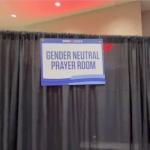
The Pew Research Center has released a new study showing that the majority of international migrants (87 percent) have some sort of religious affiliation. Nearly half of them (47 percent) identify as Christian. This is much higher than the global number, with Christians making up about 30 percent of the population worldwide. Another 29 percent identify as Muslim. Only 13 percent identify as religiously unaffiliated. According to Pew, 280 million people are living outside of the country of their birth. Over the last thirty years, the total number of migrants has grown by 83 percent, while the global population has only grown 47 percent. The study found that most Christian migrants come from Mexico and primarily migrate to the United States, while the majority of Muslim migrants come from Syria and move to the Middle East-North Africa region.
The study noted that religion can be a major factor in a migrant’s decision to leave their country of origin, usually in order to avoid or escape religious persecution. The study found that most migrants move to a country where their religion is already prevalent. However, because migrants tend to have higher religious numbers than the country they move to, their faith could have a major impact on the native-born population. “You see migrants coming to places like the U.S., Canada, different places through Western Europe, and being more religious — and sometimes more Christian in particular — than the native-born people in those countries,” said lead researcher Stephanie Kramer. In Spain, the Christian migrant population has grown 865 percent, from 500,000 to 4.2 million.
The report estimated that about 87 percent of migrants coming to the US, which has seen a growing trend of secularization and “religious nones,” are religiously affiliated. Seventy percent of those identify as Christian. The study concluded that the influx of religious migrants may have stymied the growing secularism of the US from being even worse, although it also has contributed to the growth of other non-Christian groups. “Migration has partially offset the decline in the percentage of religiously affiliated people in the U.S. public, and it has contributed to rising percentages of some non-Christian religious groups, such as Muslims and Hindus,” stated the report. “In other words, the shares of many U.S. religious groups are larger today than they would be if not for the arrival of new immigrants.” The data come from the latest UN census, dating from 2020.


